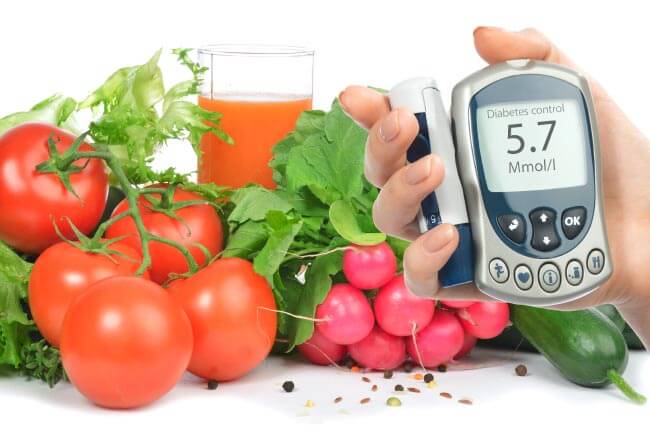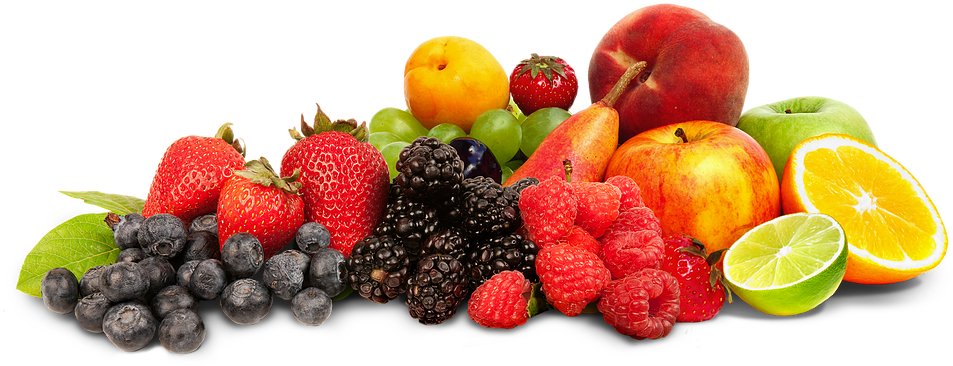
For over two decades, I’ve had the privilege of interviewing today’s leading health experts, doctors and scientists for my syndicated radio show, To Your Good Health Radio. While most of them have shared conflicting ideas when it comes to diet, exercise, and nutrition, they all share one common belief: Sugar is a leading cause of disease. Everything from obesity, diabetes and heart disease to ADHD and cancer has been linked to sugar consumption.
In 1907, the chief of the Philadelphia Bureau of Health put cravings for sugar in the same category as alcohol. Fast-forward to over a century later and science reveals that sugar causes the brain to react in the same way it does with cocaine addiction. Too much sugar can even alter the mind and cause a strong association with violence. In fact, the ‘Twinkie Defense’ has been argued in many court cases as being the cause of ‘diminished mental capacity’ and sugar has been blamed for violent crimes. A large part of daily sugar intake can be hidden inside various packaged and processed foods, many of which are marketed as “healthy.”
Okay, the white sugary powder hides in our food supply, it’s addictive, causes disease and may even contribute to violent crimes. What are some proactive steps we can take to avoid it?
Fruit: The Big Sugar Controversy
Fruit gets a bad rap because it contains sugar (aka fructose). I have interviewed many health experts that recommend totally eliminating fruit from the diet. They believe that fruit creates a sugar overload that causes inflammation that contributes to disease. In my opinion, that’s taking things way too far. Fruit is an important part of the diet. Yes, it is true that fruit contains sugar, but so do vegetables. One cup of sweet potatoes contains 6 grams of sugar yet it’s the perfect food option for diabetics. One stalk of broccoli contains 2.6 grams of sugar. The reason that eating sweet potatoes and broccoli won't spike your blood sugar is because they contain a lot of fiber
which buffers out the sugar content. When deciding which fruit to eat, it’s important to look at the glycemic index (GI). A glycemic index measures how the fruit you eat will affect your blood sugar levels. The best way to keep your blood sugar in balance is to eat fruits that have higher fiber content and a lower GI.
Instead of reaching for grapes and bananas, opt for fruits high in fiber that have a lower GI, like apples and blueberries. Even though these fruits are still high in sugar (blueberries have a whopping 15 grams of sugar per cup!), because of their fiber content, the natural fruit sugar is released slowly into the body and won’t cause any unhealthy sugar spikes. In spite of their high sugar content, research published in the American Journal of Clinical Nutrition shows blueberries can actually help normalize blood sugar levels and reduce your risk of diabetes by 23 percent.
What about the most commonly eaten fruit in the world, the apple? How can this fruit, which is loaded with sugar, be attached to the claim, “An apple a day keeps the doctor away”? Because an apple is chock full of antioxidants, vitamins and minerals and contains lots of fiber. This fiber, called pectin, buffers out the apple’s fructose, keeping you from having an insulin spike.
People who eat five or more apples per week are less likely to develop diabetes than those who don’t eat apples. However, you should never peel apples because most of that sugar buffering fiber comes from the skin.

Eat More High-Fiber Foods
Foods that are high in fiber are wonderful at helping to keep blood sugar levels balanced and eliminating spikes. Fiber also helps reduce insulin resistance and can decrease the risk of developing diabetes. Here are some great fiber-rich foods to help keep your blood sugar in check:
Beans
Eating legumes such as beans, chickpeas, and lentils offer a great source of fiber and have been shown to improve blood glucose levels. Research published by the University of Kentucky found that people with Type 1 diabetes were able to reduce insulin use by up to 38% by eating beans. They are rich in fiber, protein, minerals, vitamins, and antioxidants, yet low in fat and cholesterol-free. Worried about getting gas? Lentils, black-eyed peas, lima beans, white beans, and chickpeas are less gas-producing than kidney beans and black beans.
Whole Grains
Unlike many ready-to-eat cereals, which have too many simple carbohydrates, or sugar, and low fiber content from processed grains, whole grains are low in sugar and high in complex carbohydrates and fiber, making them ideal for helping to keep your blood sugar in check. Research published by the American Diabetes Association in 2014 showed, eating whole grains decreases insulin resistance and increases the function of insulin-producing beta cells. Some great options include Barley, buckwheat, brown rice, bulgur, oatmeal, whole oats, quinoa, 100% whole wheat bread, and wild rice.
Avocados
Don't let the fat content of avocados fool you—they're good for you! They contain monounsaturated fat, the good kind of fat that helps slow the release of sugars into the bloodstream, prompting less insulin release. Avocados may also help people feel fuller for longer. This can help people control their calorie intake without feeling hungry. A study in the Nutritional Journal found that eating half of an avocado with lunch increased levels of feeling full up to 5 hours later. You can also use avocado oil drizzled on a fresh salad or veggies.
Eggs
Eggs are a wonderful source of protein and healthy fats (polyunsaturated and monounsaturated.) One egg contains 6 grams of high-quality protein, as well as all nine essential amino acids, and is one of the few foods that contain naturally occurring vitamin D. Eggs can help control hunger by reducing the post-meal insulin response and help prevent large fluctuations in both glucose and insulin levels. A study published in the International Journal of Obesity found overweight and obese people given two eggs a day for breakfast lost 65 percent more weight than those eating a similar breakfast without eggs. In addition, people who consume eggs for breakfast eat fewer calories for the entire day, as well as for the next 36 hours.
Apple Cider Vinegar
Apple cider vinegar has been found to blunt blood sugar and insulin spikes and cause a sensation of fullness after a high carbohydrate meal. In 2004, a study cited in the American Diabetes Foundation’s publication Diabetes Care found that taking apple cider vinegar (1.5 tablespoons mixed in 1/4 cup water) before meals significantly increased insulin sensitivity and dramatically reduced the insulin and glucose spikes that occur after meals.
People with pre-diabetic symptoms benefited the most from apple cider vinegar, cutting their blood glucose concentrations by nearly half. In this study, they added artificial saccharin as a sweetener but I would highly recommend using stevia instead. Also, always buy apple cider vinegar that is organic, unfiltered, and raw. The cloudier the liquid, the better the fermentation. The best way to take it is Mix 2 tbsp. (30ml) of unfiltered apple cider vinegar into a large glass of water 1 hour before bedtime. Drinking it before bed can reduce your glucose levels by 6 percent overnight. Apple cider vinegar also goes great on top of salads. Avoid balsamic—it contains more sugar.

Take Supplements that Lower Blood Sugar
Chromium Picolinate
Chromium Picolinate can help enhance the role of insulin, the critical hormone that controls blood sugar and helps bring glucose into cells for energy. Chromium also supports a healthy metabolism. Brewer’s yeast (also called nutritional yeast), is a great source of chromium and supports the metabolism of sugar (in the form of glucose) within the blood. This can help prevent glucose-intolerance, insulin-resistance, and diabetes formation.
One study conducted by the Human Nutrition Research Center U.S. Department of Agriculture found that when individuals being treated for type 2 diabetes were either given a placebo or chromium supplements while continuing to take normal medications and not changing eating habits; insulin values and cholesterol levels decreased significantly in the group taking chromium compared to the placebo group.
Taking 200 micrograms of chromium three times daily with meals is the dosage needed to help improve insulin sensitivity. A review published in Diabetes Technology and Therapeutics evaluated 13 studies that reported significant improvement in glycemic control and substantial reductions in hyperglycemia and hyperinsulinemia after patients took 200 micrograms of chromium picolinate supplementation. It also reduced the need for hypoglycemic medication.
Cinnamon
I’m a big fan of cinnamon and recommend it daily to my patients. It’s not only great at helping to reduce inflammation within the body, but cinnamon also has the ability to lower blood sugar levels and improve insulin sensitivity. A study conducted at Western University of Health Sciences in Pomona, California found that the consumption of cinnamon is associated with a significant decrease in plasma glucose levels, LDL cholesterol, and triglyceride levels. Cinnamon consumption also helps increase HDL cholesterol levels. A 2003 study in the journal Diabetes Care showed that cinnamon caused muscle and liver cells to respond more readily to insulin, thereby improving weight loss. A better response to insulin means better blood sugar balance and, therefore, less insulin released into the body.
Ceylon cinnamon is a great option as it seems to reduce several risk factors for cardiovascular disease, including high blood sugar and levels of triglycerides, LDL ("bad") cholesterol, and total cholesterol. Just ½ teaspoon a day for 20 days is enough to improve your insulin response and lower blood sugar by up to 20 percent!
There are many ways to add cinnamon to your daily regimen. Add a teaspoon to food, smoothies or your tea. Another option is taking cinnamon capsules, which is what researchers have used in many of the studies evaluating the benefits of cinnamon. Taking at least 1g daily could reduce fasting glucose levels by as much as 30 percent! Because cinnamon may have a drastic effect on your blood sugar, if you have diabetes, always consult your doctor before adding cinnamon to your diet and monitor your blood sugar levels closely.
Alpha Lipoic Acid
Alpha lipoid acid (ALA,) is an antioxidant that helps turn glucose into fuel for the body. It effectively improves insulin sensitivity and reduces symptoms of diabetic neuropathy, such as weakness, pain, and numbness that’s caused by nerve damage. Although we make alpha lipoic acid in the body and it can also be found in some food sources, like broccoli, spinach, and tomatoes, taking an ALA supplement is far better at increasing the amount that circulates in your body. Studies have varied on exactly how much should be taken and range 600-1,200 milligrams daily for diabetes and neuropathy. One study showed improvement using 600 milligrams daily for three weeks to relieve symptoms of diabetic neuropathy.
Bitter Melon Extract
Bitter melon helps lower blood glucose levels, and it regulates the body’s use of insulin. Researchers believe bitter melon contains substances that cause decreases in blood glucose and aids in appetite suppression. In this way, it behaves similarly to insulin. Studies also suggest bitter melon improves glucose intolerance and suppresses blood glucose levels after meal consumption in animal studies. In 2016, a report published in Current Pharmacology Reports looked at bitter melon’s effects on diabetes and found that it may have hypoglycemic (low blood glucose) properties.

Get Moving!
One of the biggest causes of diabetes isn’t your diet, it’s from a lack of movement, which can lead to obesity, the number one precursor to type 2 diabetes. People that are overweight have an 80% greater chance of developing type 2 diabetes compared to those that maintain a normal weight. One reason we’ve become such an obese nation is due to our sedentary lifestyles. Most of us start our day off by sitting in a car on the way to work. Then we spend 8 hours sitting at a desk, and then we’re back sitting in the car on the way home. Once we get home from work, most of us sit at the dinner table and then we plop our rear ends on the couch to watch TV. It’s a vicious stagnant cycle.
Have no fear, you don’t have to join a gym or run a 5K. Try simply taking a walk during your lunch break. If you are limited on time, walk around the block a couple of times. If you eat at a restaurant during your lunch break, park the car in the back of the parking lot and walk. Instead of taking the elevator, take the stairs. Or, take an evening walk using an interval technique. Research shows people with Type 2 diabetes who varied their speed while walking, had better control of their blood sugar levels. Simply alternate walking for 3 minutes with jogging for 1 minute; repeat until you’ve hit the 16-minute mark.
Research published in the journal Diabetologica, compared interval walkers vs. steady-paced walkers. Those that alternated walking with jogging, and their ability to move sugar out of the circulating bloodstream and used as fuel — improved by 20 percent compared with the non-exercising group, which saw no improvement.
Since sitting is the main cause of obesity and diabetes, the more you can move and exercise the better chance you’ll have of losing excess pounds to reduce your blood sugar. Even a small loss of 5 percent of your body weight -- for example, 10 lbs. if you weigh 200 lbs. -- can improve your sugar level. Maintaining a healthy weight will not only help you reduce your blood sugar but will also improve your overall health.

Get more sleep
Sleep deprivation can wreak havoc on your blood sugar! The body’s reaction to lack of sleep can resemble insulin resistance, a precursor to diabetes. Research shows people who get less than 6 hours of sleep are twice as likely to have cells that were less sensitive to insulin or to have full-blown diabetes. Also, when you stay up too late, your body makes more of the hormone cortisol, which affects how insulin works.
Why would lack of sleep affect hormones and glucose metabolism? Part of the answer has to do with slow-wave sleep. When a person enters slow-wave or deep sleep, nervous system activity goes down, the brain uses less glucose, and other changes occur such as an increase in growth hormone and a decrease in the activating hormone cortisol. For this reason, a sufficient amount of deep sleep is thought to be very important to the regulation of glucose in the body.
Getting 7- 8 hours of restorative sleep each night will go a long way toward helping your body use insulin efficiently. Along with getting enough sleep, avoid eating three hours before going to bed.
About the Author
Dr. David Friedman is the author of the award-winning, #1 national best-selling book Food Sanity, How to Eat in a World of Fads and Fiction. He's a Doctor of Naturopathy, Chiropractic Neurologist, Clinical Nutritionist, Board Certified Alternative Medical Practitioner, and Board Certified in Integrative Medicine. Dr. Friedman is a syndicated television health expert and host of To Your Good Health Radio, which has changed the face of talk radio by incorporating entertainment, shock value, and solutions to everyday health and wellness issues.
Read more hereFOODSANITY.COM .